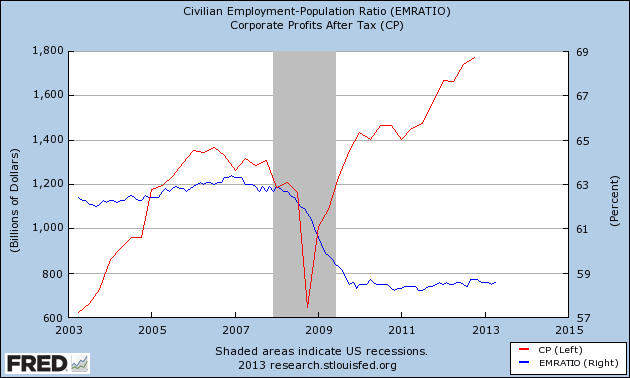The end of retirement
Some highlights, (or lowlights, depending on your perspective), from the recently released Wells Fargo Middle Class Retirement Study, an annual look at the attitudes, preparedness, and expectations for retirement amongst middle class American worker:
1. More than half the middle class (59%) are very clear that their top day-to-day financial concern is “paying the monthly bills,” an increase from 52% in 2012.
2. Saving for retirement ranks a distant second place, with 13% calling it a “priority."
3. Four in ten middle class Americans (42%) say saving and paying the bills is “not possible.”
4. 48% are not confident they will be able to save enough for a comfortable retirement.
And last but not least the major implication for HR and Talent pros from this pretty depressing report on the state of American middle class retirement readiness:
5. 34% of the middle class say they will work until they are “at least 80” because they will not have saved enough for retirement, up from 25% in 2011 and 30% in 2012
A pretty grim situation on the current state of the average middle class American worker you would have to say. Even allowing for some sample size error, and for the inability of folks to accurately estimate the amount of funds needed for their retirement, (and their likely life spans), which I would argue would put even more folks in the 'there is no way I can ever retire' category, when over a third of folks think they will be working until they are 80 years old then I think we have to pause and think about the implications of that conclusion. Save my seat. My shift at Walmart ends at Noon.
Save my seat. My shift at Walmart ends at Noon.
I know it has become perhaps even trendy to say or think things like, 'I'm never going to retire', or to look at the traditional view of 'Full' retirement, i.e. doing absolutely no work at all once you leave the workforce as a relic of our parents generation, many of whom logged 30+ years at one employer and hit 65 (give or take), and started drawing a nice monthly company pension check that combined with their savings and Social Security payments would see them nicely into their golden years. With long-term employment at one employer and guaranteed pensions no longer the norm, the entire geometry of the path to retirement in 2013 looks almost nothing like it did even 25 years ago.
But it seems to me like the folks that I hear that proudly talk about 'never' retiring, really aren't the same ones that the Wells Fargo survey is measuring. Mostly, it seems, that 'I'm never retring' people are the ones that are making that decision quite consciously and out of a desire to continue the interesting and challenging work that they have been fortunate and industrious enough to have been doing. They probably could, strictly speaking from a financial point of view, afford to retire in the traditional sense close to the traditional retirement age.
No, it seems to me that most of the rest of us, and the majority of the survey respondents, still remain philosophically attached to what is fast becoming a relic of the past, that after logging 30 or 35 years as a loyal and diligent cog in the corporate machine that you'd have at least 10 or 15 years of front porch sitting, lemonade drinking, and grandchild spoiling to look forward to, all unencumbered by the demands of work, (and some 32 year-old hotshot and clueless boss).
But this survey, and likely a dozen other we can find, tell a very different story, one that is more about the mismatch between expectation and reality, and one where we see what has long been a cherished and venerated ideal bucking up against the reality of life in corporate American in 2013.
Retirement might indeed be over in America in the very near future.
Is your workplace ready to accommodate even more workers in their 70s and 80s?
Have a great week all!

 Steve
Steve
